Mohammad Majid al-Rifaie
Tomographic Reconstruction and Regularisation with Search Space Expansion and Total Variation
Jun 03, 2024
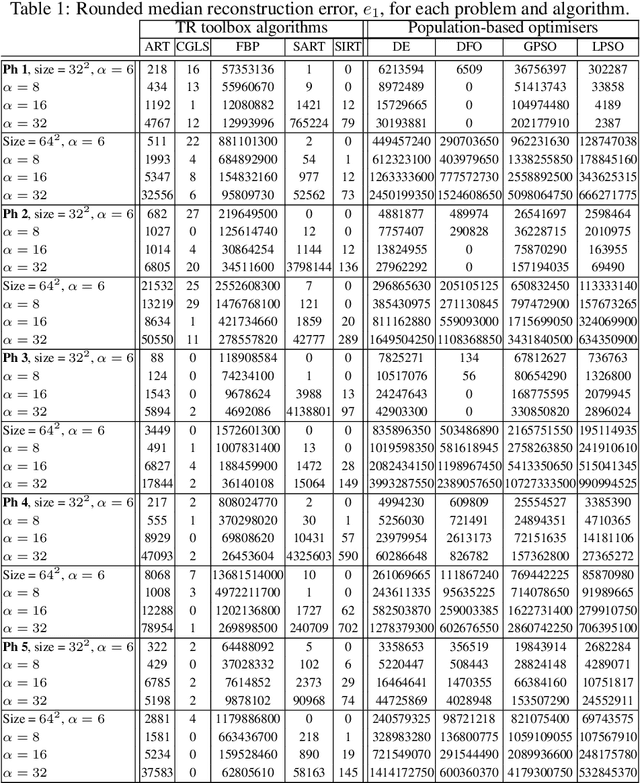
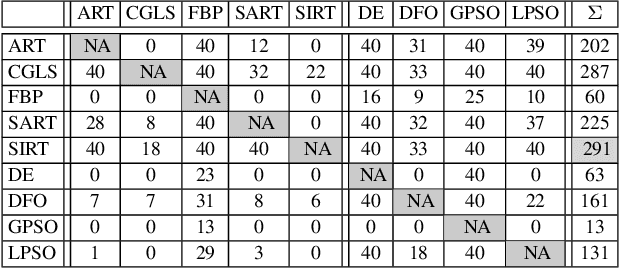
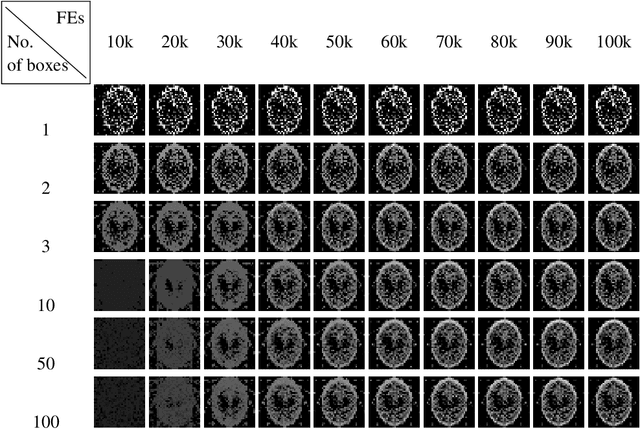
Abstract:The use of ray projections to reconstruct images is a common technique in medical imaging. Dealing with incomplete data is particularly important when a patient is vulnerable to potentially damaging radiation or is unable to cope with the long scanning time. This paper utilises the reformulation of the problem into an optimisation tasks, followed by using a swarm-based reconstruction from highly undersampled data where particles move in image space in an attempt to minimise the reconstruction error. The process is prone to noise and, in addition to the recently introduced search space expansion technique, a further smoothing process, total variation regularisation, is adapted and investigated. The proposed method is shown to produce lower reproduction errors compared to standard tomographic reconstruction toolbox algorithms as well as one of the leading high-dimensional optimisers on the clinically important Shepp-Logan phantom.
Multi-Objective Evolutionary Beer Optimisation
Apr 13, 2022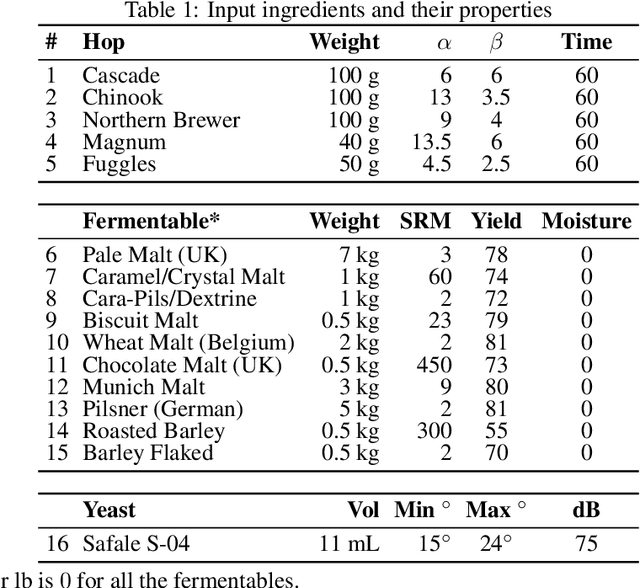

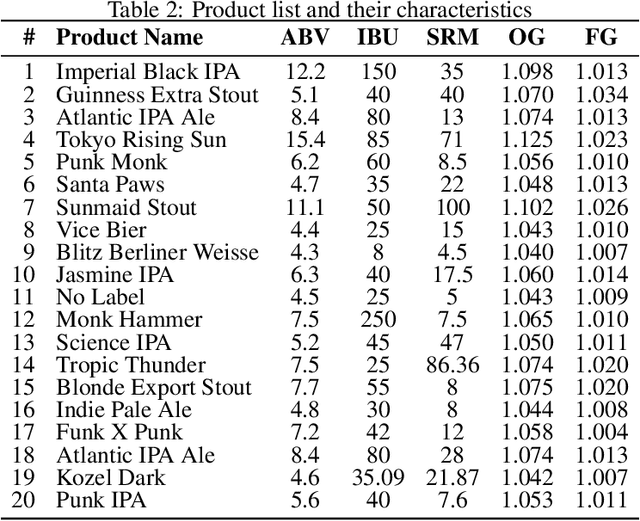
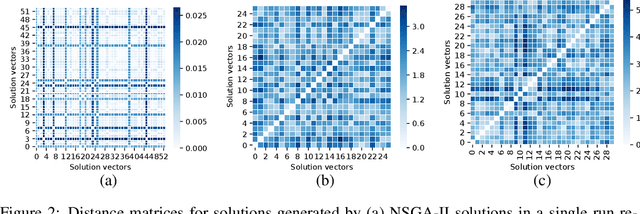
Abstract:Food production is a complex process which can benefit from many optimisation approaches. However, there is growing interest in methods that support customisation of food properties to satisfy individual consumer preferences. This paper addresses the personalisation of beer properties. Having identified components of the production process for craft beers whose production tends to be less standardised, we introduce a system which enables brewers to map the desired beer properties into ingredients dosage and combination. Previously explored approaches include direct use of structural equations as well as global machine learning methods. We introduce a framework which uses an evolutionary method supporting multi-objective optimisation. This work identifies problem-dependent objectives, their associations, and proposes a workflow to automate the discovery of multiple novel recipes based on user-defined criteria. The quality of the solutions generated by the multi-objective optimiser is compared against solutions from multiple runs of the method, and those of a single objective evolutionary technique. This comparison provides a road-map allowing the users to choose among more varied options or to fine-tune one of the favourite identified solution. The experiments presented here demonstrate the usability of the framework as well as the transparency of its criteria.
Beer Organoleptic Optimisation: Utilising Swarm Intelligence and Evolutionary Computation Methods
Apr 07, 2020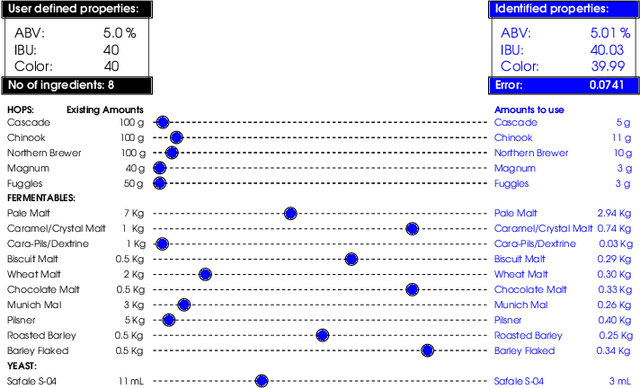
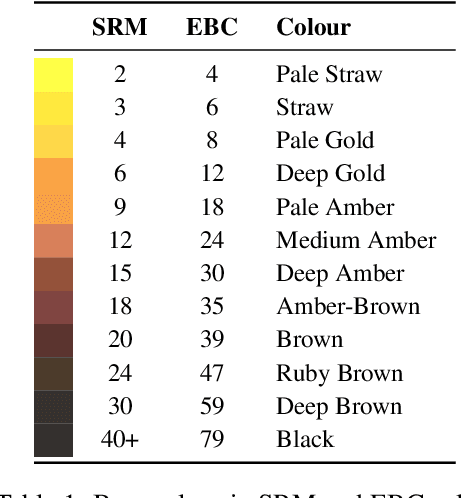
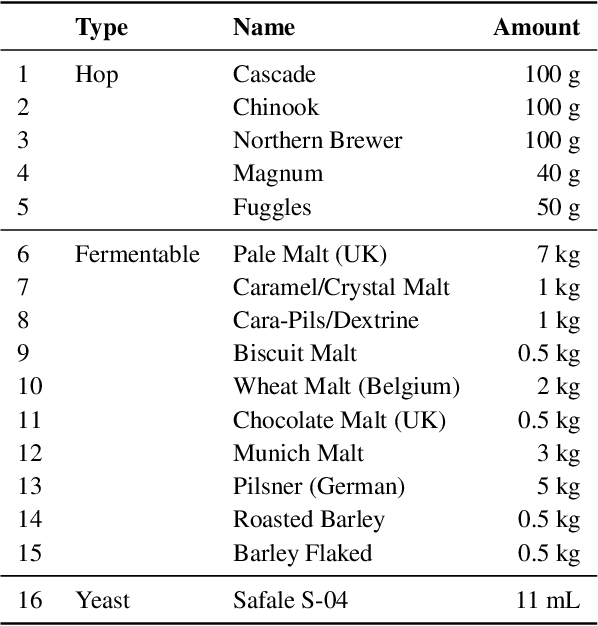

Abstract:Customisation in food properties is a challenging task involving optimisation of the production process with the demand to support computational creativity which is geared towards ensuring the presence of alternatives. This paper addresses the personalisation of beer properties in the specific case of craft beers where the production process is more flexible. We investigate the problem by using three swarm intelligence and evolutionary computation techniques that enable brewers to map physico-chemical properties to target organoleptic properties to design a specific brew. While there are several tools, using the original mathematical and chemistry formulas, or machine learning models that deal with the process of determining beer properties based on the pre-determined quantities of ingredients, the next step is to investigate an automated quantitative ingredient selection approach. The process is illustrated by a number of experiments designing craft beers where the results are investigated by "cloning" popular commercial brands based on their known properties. Algorithms performance is evaluated using accuracy, efficiency, reliability, population-diversity, iteration-based improvements and solution diversity. The proposed approach allows for the discovery of new recipes, personalisation and alternative high-fidelity reproduction of existing ones.
 Add to Chrome
Add to Chrome Add to Firefox
Add to Firefox Add to Edge
Add to Edge